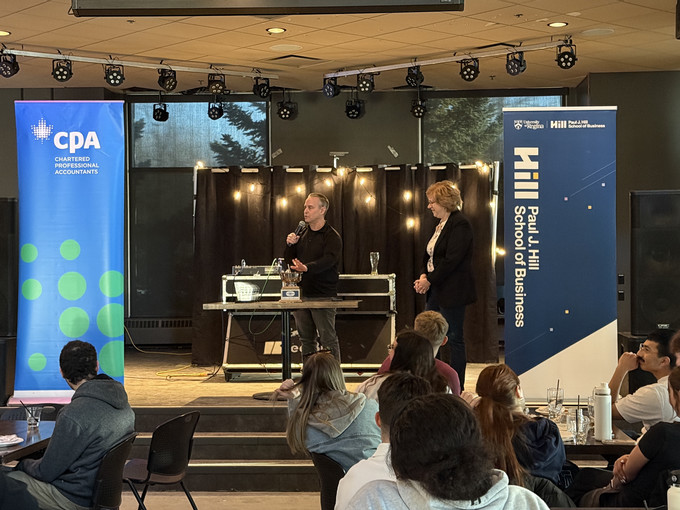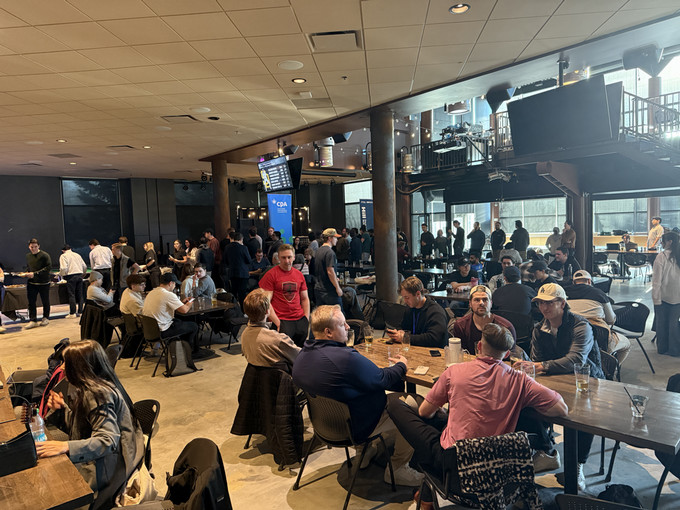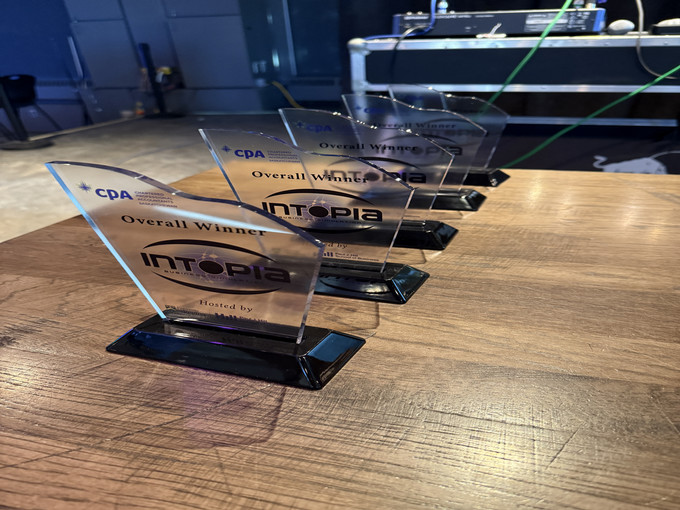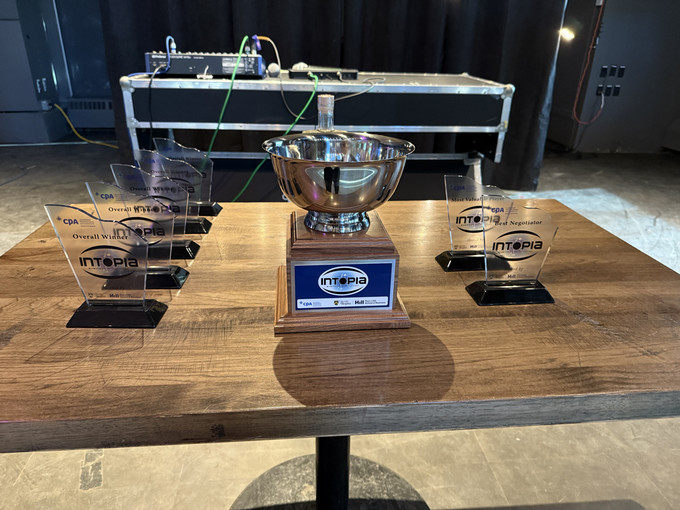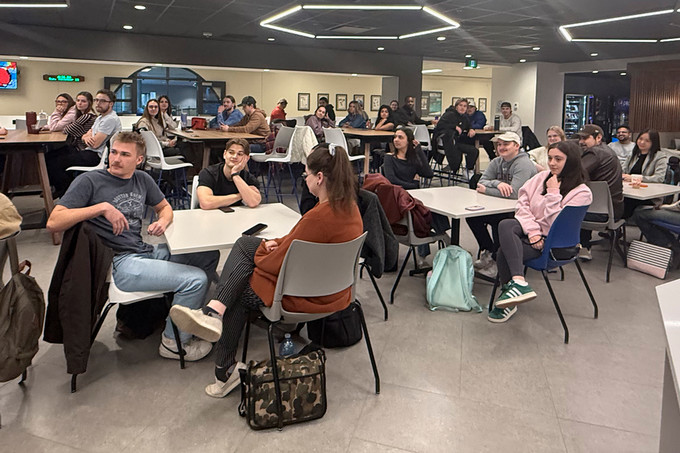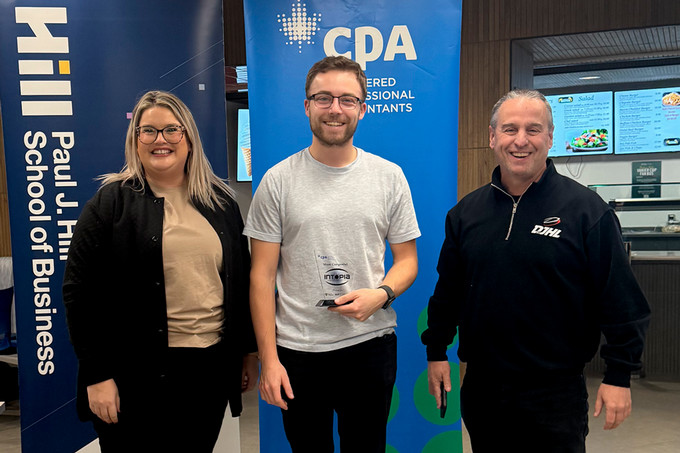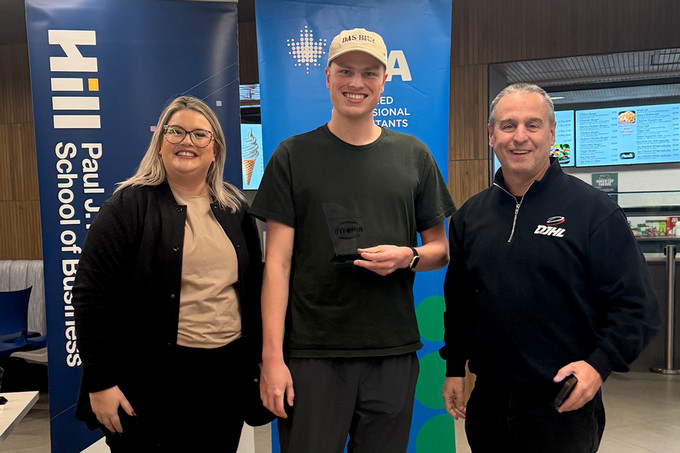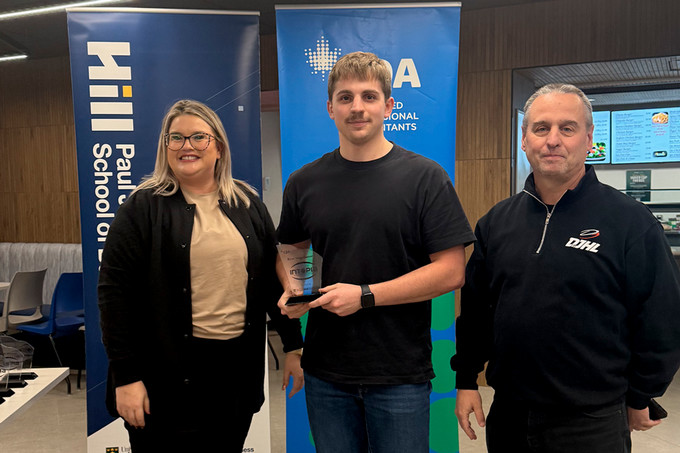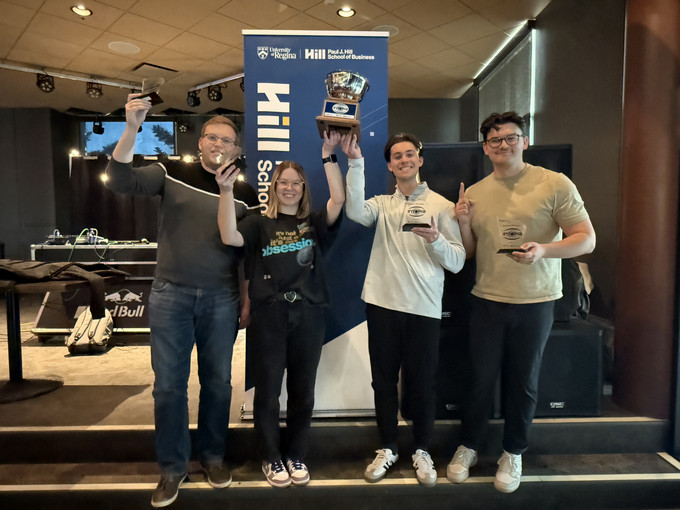
INTOPIA Business Simulation
The INTOPIA Business Simulation is a key experiential learning component of BUS 400 – Business Strategy, the capstone course of the Bachelor of Business Administration (BBA) program at the Paul J. Hill School of Business.
Offered in partnership with CPA Saskatchewan and led by international expert Dr. Tim Jones, INTOPIA places students in the role of senior executives navigating the complexities of international business in a dynamic and competitive environment.
INTOPIA is a required component of BUS 400 when offered in the Fall and Winter semesters.
What is INTOPIA?
INTOPIA is a strategic management simulation that challenges students to apply their business knowledge in a dynamic, competitive environment focused on international trade and global operations.
A Real-World Business Challenge
Students are grouped into company teams of 3 to 6 members drawn from all BUS 400 sections. Each team runs a simulated company that competes in a global market. The company’s structure can be based on product lines, geographic areas, customer groups, or functional roles.
Build and Leverage Networks
A core feature of the simulation is the emphasis on building and maintaining networks, information networks, distribution channels, and R&D alliances all play a critical role in business success.
Applied Learning in Action
As students manufacture, sell, and ship products and transfer funds, they see the direct impact of their decisions on outputs like sales, profitability, and market share. This simulation is the ultimate opportunity to turn theory into practice and experience the pressure and excitement of managing a real-world business.
Decision-Making Across Business Functions
The simulation requires students to make high-level decisions in all core functional areas, including:
- Accounting
- Finance
- Human Resources
- Information Systems
- Marketing
- Operations
- Organizational Behaviour
- Research & Development
Interactive, Competitive, and Collaborative
INTOPIA allows teams to engage in real-world business activities such as:
- Buying and selling
- Licensing patents
- Borrowing and lending
- Forming joint ventures
- Negotiating partnerships
- Trading information
Students must think strategically, collaborate effectively, and react quickly to market conditions and competitor moves.
Learning Outcomes
The simulation is designed to reinforce and apply the knowledge students have gained throughout their BBA journey. Through INTOPIA, students develop and strengthen skills in:
- Strategic planning and execution
- Cross-functional collaboration
- Ethical and data-driven decision-making
- Business negotiation and communication
- Leadership and critical thinking
- Risk analysis and financial accountability
In addition to technical skills, INTOPIA places strong emphasis on interpersonal skills, teamwork, and real-time problem solving, core capabilities that employers look for in business graduates.
Structure and Format
The simulation runs over the course of one intensive weekend near the end of the semester. Students attend a kick-off session on Friday evening and engage in multiple decision-making rounds over three days, culminating in a final debrief and awards presentation.
Sample Schedule:
| Friday | Saturday | Sunday |
|
|
|
Why it Matters
INTOPIA gives students a high-impact, capstone experience that prepares them to transition from academic studies to the real business world. It offers a safe space to take risks, learn from mistakes, and gain a holistic view of business operations, while working under pressure, just like in real-life executive roles.
Whether students aim to launch a startup, join a multinational, or pursue further education, INTOPIA equips them with the confidence, skills, and experience to lead.
Questions?
For more information about BUS 400 or the INTOPIA Business Simulation, please contact the Hill School of Business Undergraduate Office at Hill.Undergrad@uregina.ca

Leadership & Facilitation
INTOPIA is facilitated by Dr. Tim Jones, Associate Professor of Marketing and Strategy at Memorial University. With over 30 years of experience in delivering business simulations and authoring over 30 teaching cases, Dr. Jones brings academic rigour, real-world relevance, and a deep commitment to student learning. His work has been published in top academic journals, and his BCAP (Business Case Analysis Process) textbook is widely used in business education across North America.
The simulation is coordinated by BUS 400 instructors at the Hill School of Business, with full integration into the course curriculum.
Recognition and Awards
Student teams are evaluated on business performance, strategic thinking, and teamwork. Awards are presented in categories including:
- Best Component Producer
- Best Finished Goods Producer
- Best Wholesaler
- Best Integrated Producer
- Best Overall Team
Individual recognition is also given for exceptional leadership and negotiation skills.
Fall 2025 Award Winners
Congratulations!
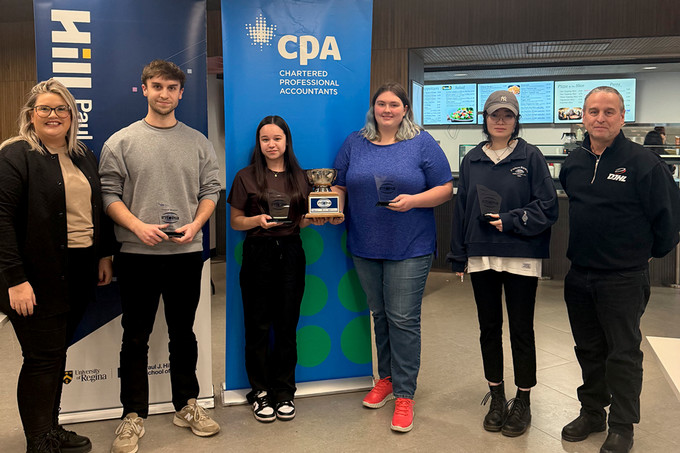
Winter 2025 Award Winners
Congratulations!
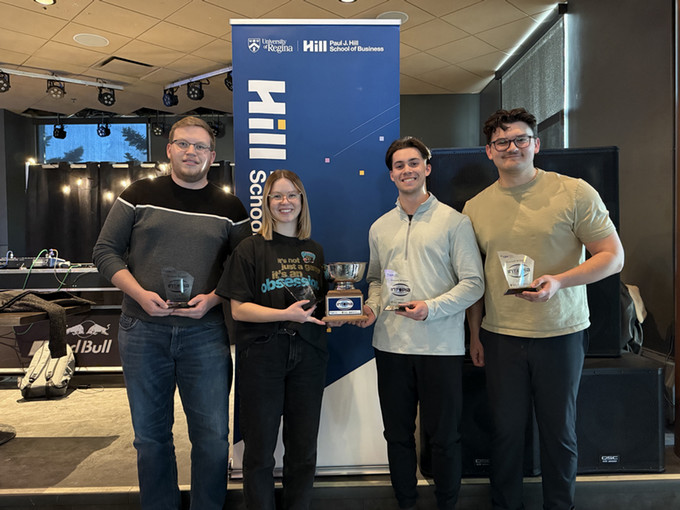
Individual Awards:
Best Negotiator: Carter Jessop (Team 11)
Most Valuable Player: Maria Rigetti (Team 6)
Team Awards:
Best Component Producer (Team 18)
- Naifish Maredia
- Gnandeep Dudhat
- Pawan Parekh
- Meet Shah
- Brennen Stubel
Best Finished Goods Producer (Team 22)
- Carter Phelps
- Jordan Zaphe
- Aden Kearns
- Khay Mi Ah Na
Best Wholesaler (Team 12)
- Andrew Vanderhooft
- Molly Hall-Cunningham
- Sophia Easton
- Aman Sokhal
- Jamie Scarfe
- Ben Hall-Cunningham
Best Integrated Producer (Team 6)
- Jonah Glas
- Joshua Haczkewicz
- Maria Rigetti
- Colton Bennefeld
Best Overall Team (Team 6)
- Jonah Glas
- Joshua Haczkewicz
- Maria Rigetti
- Colton Bennefeld
